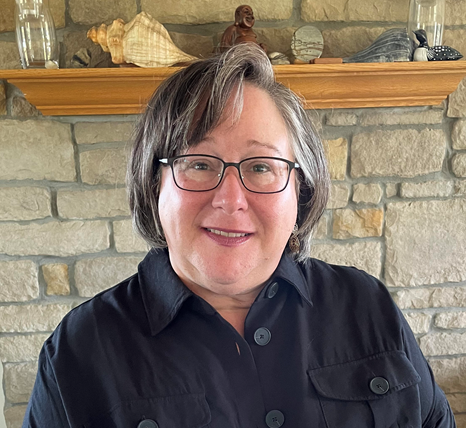
Three Ways to Win over Your Proposal Team (I learned from my Dog Chase)
27.04.2022
-5 min

Software
LET'S TALK!
We offer software that makes you win big and ultimately gives you the work-life balance you deserve.

XaitPorter
Co-authoring and automation solution for complex documents

XaitCPQ
Quickly and accurately price combinations of interdependent products and services
XaitProposal
Guided proposal creation for comprehensive, winning proposals
XaitRFI
The smarter way to respond to RFIs, DDQs and security questionnaires
XaitWebProposal
The easiest way to create interactive and custom mini-websites

XaitAI
The X factor for analyzing and writing winning bids and proposals
Industry
OUR SOLUTIONS BY INDUSTRY
Do you have a question about your business vertical?
Resources
RESOURCES
Discover all our Xaiting resources!
About us
LET'S TALK
We can challenge mindsets and make significant changes to the way people interact

Cheryl Smith
27.04.2022
-5 min

Proposal teams are an odd bird. By definition, they are cross-functional teams; they are assembled ad hoc, depending on proposal requirements, and briefly united behind a goal. Like a sports team, they collaborate on codependent tasks. Like an orchestra, the combination of their skills and expertise is greater than the sum of their parts.
Individually, however, members are drawn from project teams across the organization. Temporary by design, the team is under intense pressure to collaborate and show results while balancing time and effort with their full-time jobs.
Uniting this odd team is a challenge. While industry best practices abound, for me, three profound lessons came from an unexpected source: my dog, Chase.
Be an Open Book
Proposal managers want transparency for the same reason all teams want transparency: communicating openly and honestly builds trust. With trust comes the team rapport that drives cooperation.
When my mother-in-law was confined to rehab after surgery, we brought Chase along to visit. Down the long hallway, he stopped to greet each person. He was expressive, ears up and tail wagging, opening lines of communication. He was relaxed, making eye contact without staring, making himself available. He was respectful, leaning in to show interest but not jumping up, making his intentions known. As we went, people reached out, laughing and talking and the hall transformed from a feeling of isolation to comradery.
Being transparent isn’t about being the center of attention. It’s about being honest and authentic, without pretense, vanity or ulterior motive, in our communication. Our authenticity makes the people around us more comfortable. Our vulnerability opens doors to relationships with people who might otherwise be guarded. This builds trust, and as trust grows, we lower barriers and promote a more productive team dialogue.
Live in the Moment
While we can learn from the past and can plan for the future, dwelling on the past and worrying about the future only sets us up for frustration. When we are present in the moment, we focus on the interactions that rally our team around a shared purpose.
As each of Chase’s fuzzy friends arrive for the weekend, he stops what he’s doing and gives them his full attention, running to the gate, wagging his tail. When he senses his friend is nervous, he is respectful, standing apart to give them time to adjust. When he senses his friend is excited, he is gregarious, sniffing and nuzzling. Throughout the day, they pick up on each other’s feelings, understand their goals, resolve problems, and above all, experience the satisfying nature of being part of a pack.
Being present means we are fully engaged in the here and now. We demonstrate respect by appreciating where we are. We promote serenity by concentrating on what we are doing. We nurture kindness by sensing who we are with, their thoughts, feelings and mood. With this mindset, we improve our listening skills, get out ahead of challenges, make wiser decisions, and above all, work better as a team under pressure.
Be an Encourager
If we remind your team about the deadline, they’ll tune us out. If we explain the process, they’ll roll their eyes. If we repeat how strategic the deal is, we’re preaching to the choir. Instead we should approach our team the way we do proposals; compel them by putting them first.
When it comes to our daily hike, something I’m not always inclined to do, Chase is an excellent role model. He doesn’t remind me, he invites me to get off the sofa and be active with him. He doesn’t explain the health benefits, he focuses on the fun. When we’re on the trail together, he makes me feel self-assured, even when I’m flagging. By putting me first, Chase inspires me to do better, and I’m more confident that I can.
Encouraging our team means being positive, supportive and promising. When we stay positive we are consciously telling our team, “Ask me anything” and they feel heard and validated. When we are supportive we are consciously telling our team, “I appreciate you” and they feel understood and valued. When we are promising, we are consciously telling our team “let’s improve together” and they feel connected and confident.
Proposals are a shared experience, despite their temporary nature. When we unite our teams as people, rather than resources, our shared experiences engender a sense of belonging and meaning, encourage us to be more aware of our feelings and the feelings of others, and kindle the resilience we need to collaborate under intense pressure. After all, sometimes the most profound lessons can come from the most unexpected places. 

Cheryl Smith
Cheryl Smith is our Senior Content Writer. She has additionally been writing and managing proposals since 1998. Shipley trained, she has helped establish proposal centers and advised on capture strategy, coached orals teams and lead marketing, communications and knowledge management programs. Cheryl is a graduate of The George Washington University with degrees in Theatre, Communications and Literature. When she’s not sharing her passion for work, she loves drawing, writing, cooking and exploring the Virginia woodlands with her husband, their dog Chase and the fuzzy guests they host for Rover.

